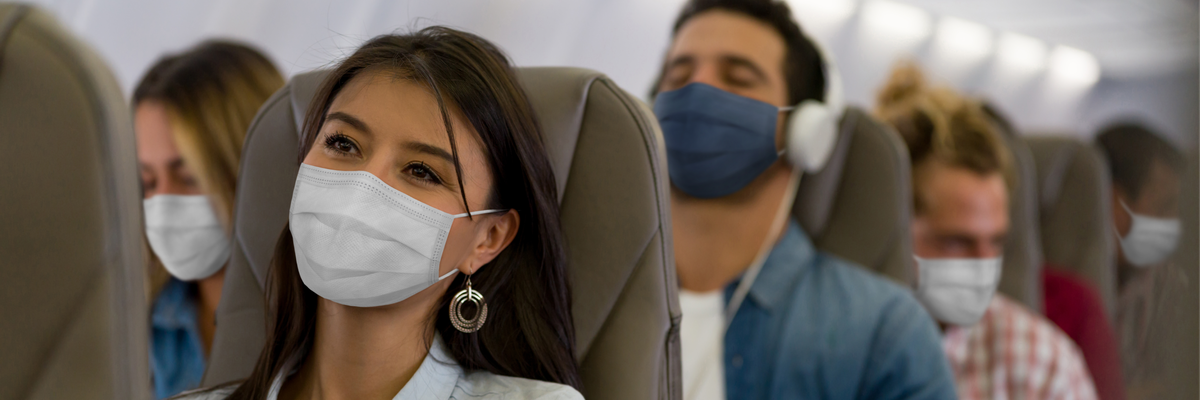People around the world tend to agree on mask use indoors apart from in their own homes
The global rise in facemask use has been one of the defining features of the COVID-19 pandemic. Research from the YouGov-Cambridge Globalism Project carried out in 25 countries last summer reveals where people think wearing a facemask should be compulsory during the pandemic.
Facemasks and public transport
Efforts have been made around the world to keep public transport running during the pandemic while ensuring passengers are safe.
People in Brazil are the most likely think facemask should be required on public transport during the pandemic (93%). A similar proportion (92%) of South Africans, Mexicans, and Spaniards agree.
In the United Kingdom, 83% of people think facemasks should be compulsory on public transport for the duration of the pandemic, while 78% of Canadians and 77% of Germans agree.
Only half of Swedes (51%) think facemask should be mandatory on public transport while the pandemic is ongoing, the lowest of the surveyed countries.
Facemasks and medical facilities
Facemasks were already a common sight in medical facilities before the pandemic, but most people now think they should be compulsory for the duration of the pandemic.
Mexicans, Spaniards and Brazilians (93%) are among the most likely to say this, closely followed by 92% of South Africans and French people, and 91% of Nigerians.
Just over four in five people in the UK (84%) think facemasks should be rule in medical facilities, as do 83% of Canadians and 81% of Hungarians.
Despite a majority of Swedish adults (61%) agreeing, they are again the least likely to approve.
Facemasks and shopping
Public opinion on wearing facemasks inside shops while COVID-19 is in circulation is similar. Brazilians and Spaniards are the most likely to support it at 90%. Most South Africans (89%) and Mexicans, Turks and Italians (all at 87%) also favour this policy.
Elsewhere, three quarters of people in Thailand and the UK (76%) agree facemasks should be compulsory for shopping during the pandemic. In the US, around three in five people (62%) are of the same opinion.
Fewer than half of Swedes (35%) and Danes (45%) support the approach – the lowest among the surveyed countries.
Facemasks and airports
Air travel has been a major issue during the pandemic, with many countries blocking international flights, and others implementing testing regimes for passengers. Brazilians and Spaniards are again the most likely to think masks should be required in airports during the pandemic at 92% each. This sentiment is shared by a similar proportion (90%) of Mexicans, South Africans, and French people.
In China where COVID was first detected, 87% of people support airports having a facemask use rule. Britons are also largely in favour at 79%.
Swedish people are least likely to think mask use should be compulsory at 53%.
Facemasks on public streets
While people in the surveyed countries mostly agree that facemasks should be compulsory in indoor spaces, opinion on mask wearing outdoors is divided.
In Indonesia, 81% of people think that facemasks should be compulsory on public streets during the pandemic, as do 79% of Indians, 75% of Thai people, and 72% of both Mexicans and Brazilians.
Elsewhere public opinion is split. In Australia and France, approaching half (47%) say facemasks should be required in public streets during the pandemic. About a third of adults in the United States (36%) and Italy (34%) agree.
Only a fifth of Britons (18%) are supportive, while among Swedes this drops to one in ten (10%).
Facemasks at home
Further to wearing facemasks on public streets, making facemasks mandatory when at home during the pandemic proves even less popular. Support is greatest among Indians (21%), Saudi Arabians (18%) and Turks and Egyptians (both at 16%).
In the west, one in ten adults in the United States (10%) agree, as do the same proportion of Mexicans and Brazilians. In the UK, just 2% of people think facemasks should be compulsory in private homes.
Learn more about the YouGov-Cambridge Globalism Project here
See full results here












